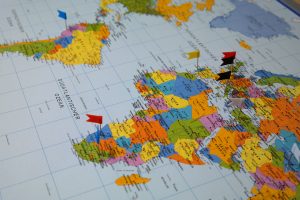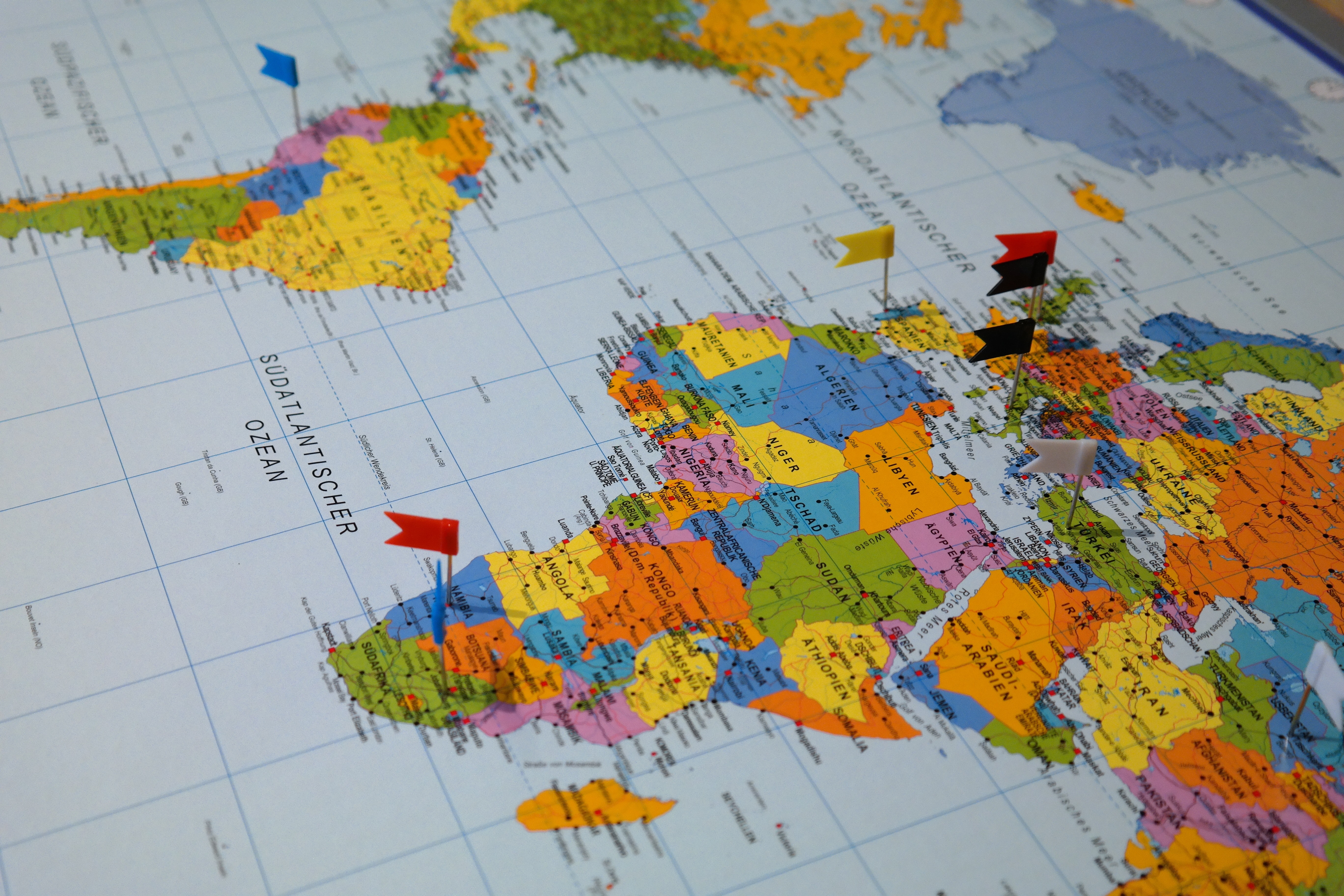EVENTS
GPA Career Infosession: US State Department and Peace Corps
/in Events Blog /by mparker
U.S. Peace Corps and State Department | 10 February 12:30 | Zoom
Jason Vorderstrasse from the State Department and Jeffrey Janis from the Peace Corps will present an infosession via zoom for students interested in careers with the United States Government
Jason Vorderstrasse is the Diplomat in Residence for Southern California, Hawaii, and Nevada, recruiting for the U.S. Department of State. He previously worked as the Reports and Blockchain Coordinator and Deputy Director of the Office of International Labor Affairs in the Bureau of Democracy, Human Rights, and Labor. Prior to that, he served as Chief of the Political and Economic Affairs Office in Tijuana, Chile Desk Officer, Global Affairs Officer for the Bureau of East Asian and Pacific Affairs, and in consular positions in both Hong Kong and Kingston. Before joining the Department of State, he worked at the U.S. Department of Labor in Los Angeles for nearly six years.
Jeffrey Janis has worked in the non-profit sector for most of his adult life. He focused most of his career on major gifts and he has raised more than $60,000,000. His has worked for organizations such as the United Jewish Appeal, United Way of Greater Los Angeles, United States Holocaust Memorial Museum, and the Los Angeles Ronald McDonald House. When he was 44, he became a Peace Corps Volunteer in Ukraine and worked with non- profits helping them with fundraising, grant writing, and strategic planning. His secondary projects include an English Club, Chair of the HIV/AIDS group, and he taught American Sign Language to deaf Ukrainians. He currently works for UCLA as the Peace Corps Campus Recruiter and was recently elected to the Board of National Peace Corps Association.
https://www.eventbrite.ie/e/careers-in-foreign-service-tickets-259785414167
GPA IPP Summer Fellowship Orientation
/in Events Blog /by mparkerThe International Practice Pathway (IPP) of Global Public Affairs at Luskin provides financial support for first year students seeking summer placements in low and middle-income countries. GPA can assist students with information on potential summer internship placements, including contact information of summer employers, as well as second-year students and Luskin graduates who completed summer internships.
Summer internships are serious professional undertakings involving recognized international organizations. Professionalism, responsibility, and respect are required of all students participating in the program.


















Empowering Urban Youth: Sports, Democracy, and Community Building
/in Events Blog, GPA Summer Fellowship, IPP Fellows, Students, Urban Planning /by chyadavBy Joshua Claxton, MURP 2024
In the ever-expanding and complex urban tapestry of the Paris metropolitan area, Sport dans la Ville is one of the primary non-profits empowering systemically marginalized youth through the most natural human activity: play. This organization, translating to ‘Sport in the City’, stands as a testament to the transformative power of sports in shaping and mobilizing youth in disenfranchised communities. This summer, I was privileged to become part of this important work within the urban tapestry, tutoring English and coaching soccer. But beyond the field and classroom, my experience resonated deeply with my academic research interests in democracy and grassroots movements.
Narratives of Resilience and Participation
During my English tutoring sessions, the stories shared by the youth were not just tales of personal ambition but were reflections of their collective visions of community power. These narratives consisted of a nuanced, boundless, and evolving set of hopes and challenges, offering a window into the counter narrative of urban youth of color, contrasted with mainstream perceptions of Parisian poverty. I believe their stories convey a need for better representation and active participation in community growth, essential principles of participatory planning in the built environment. At the same time, I understood that some youth desire to leave their communities, pursue their careers, and ensure their individual family’s economic stability.
Soccer: A Microcosm of Democratic Socialization
The field at Sport dans la Ville is not about soccer in essence. I found it to be a space where principles of democracy can emerge. Here, I witnessed inspiring and generative forms of youth socialization. We encouraged the players to engage collective decision-making and supported them in conflict resolution. This mirrored my learnings in grassroots organizing and community-based urban planning, where communal strategies, shared responsibility, and trust are paramount.
I saw empathy, consensus, and magnanimity practiced and emerging. The soccer field became a space of community organizing, nurturing democratic values that extend beyond sports.
Emergent Community Power
My time with Sport dans la Ville is ultimately not about the nominal functions being performed or the skills cultivated: English proficiency and soccer ability. It has been an exploration of how youth activities catalyze democratic values and latent forms of grassroots community power. The youth that I have had the pleasure of engaging with, and with whom I will continue to work, are wonderful spirits who possess tremendous potential to lead transformation in their communities.
Reflecting upon my experience, I’m more convinced than ever of the symbiotic relationship between informal forms of social gathering like soccer, democracy, and grassroots organizing. Sport dans la Ville is doing indispensable work towards a world vision where community planning is truly inclusive and participatory.
Book Launch Focuses on Founder of Nonprofit BRAC
/in Events Blog /by jclaxtonUCLA Luskin hosted a book launch for the biography “Hope Over Fate: Fazle Hasan Abed and the Science of Ending Global Poverty” by Scott MacMillan. The book details the life of Fazle Hasan Abed, founder of the nonprofit grassroots organization BRAC (originally called the Bangladesh Rehabilitation Assistance Committee), which has now grown into one of the world’s largest NGOs, reaching 100 million people in Asia and Africa. MacMillan, his speechwriter, spent a great amount of time working alongside Abed and shared stories at the Oct. 27 book launch, organized by Global Lab for Research in Action and Global Public Affairs at UCLA Luskin. His talk included details about the origins of BRAC and the stories of locals who benefited from the organization. Abed created BRAC in an effort to alleviate poverty in Bangladesh and provide more people with jobs to help sustain themselves. The organization focuses on microfinance, women’s healthcare and social enterprises, as well as providing life skills and livelihood training for girls in countries such as Bangladesh, Tanzania, Uganda, Sudan and Sierra Leone. BRAC stands out from other NGOs because it takes an entrepreneurial approach to tackling poverty, and also because its roots are in Bangladesh, unlike other NGOs that originated outside the Global South. “The road ahead was actually really long, and actually giving people the tools to lift themselves out of poverty involved many other resources. But none of that would mean a thing if people did not first believe in the possibility or change,” MacMillan said. — Aminah Khan
View photos from the book talk